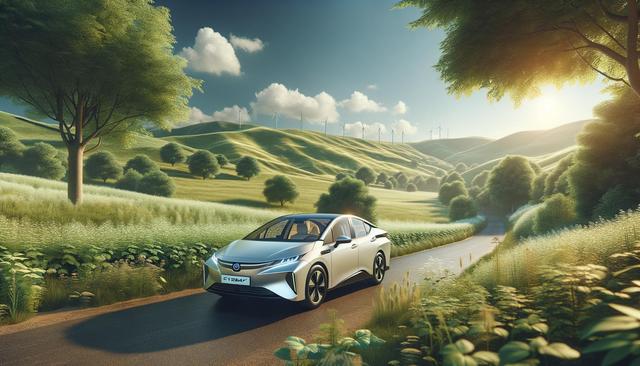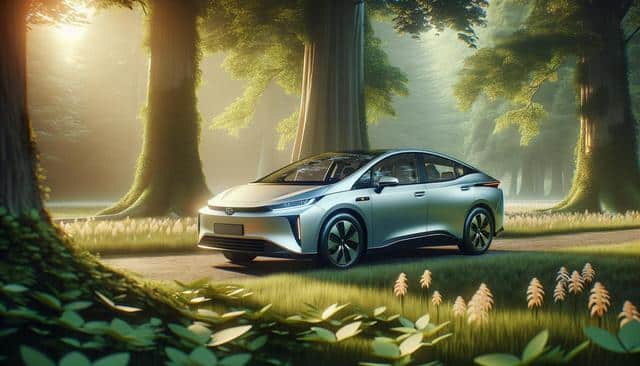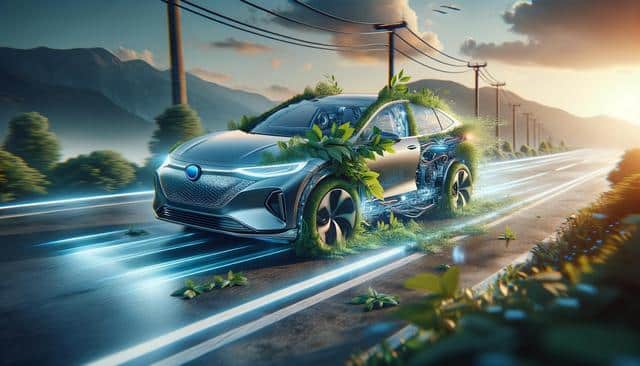
Exploring the Rise of Hybrid Cars: Efficiency Meets Innovation
What Are Hybrid Cars and How Do They Work?
Hybrid cars combine a traditional internal combustion engine with an electric motor and battery system, creating a dual power source that allows for greater fuel efficiency and reduced emissions. The two systems work together seamlessly, with the electric motor handling low-speed driving and the gas engine kicking in when more power is needed or when the battery is low. This setup allows hybrid vehicles to use less fuel, especially in urban driving conditions where stop-and-go traffic is common.
There are different types of hybrids, such as full hybrids, mild hybrids, and plug-in hybrids, each offering varying degrees of electric assistance. Full hybrids can drive on electric power alone for short distances, while plug-in hybrids have larger batteries that can be charged via an external power source for extended electric-only driving. Mild hybrids, on the other hand, cannot run solely on electricity but use electric assistance to enhance fuel economy. This versatility is one reason why hybrid technology continues to evolve and attract a wide range of consumers. For more information on how hybrid vehicles are changing the automotive landscape, visit https://go.jexli.com/postback?clickId={click_id}&payout={epayout}&p2={campaign}.
Environmental Benefits of Hybrid Vehicles
One of the primary drivers behind the popularity of hybrid vehicles is their potential to reduce environmental impact. Hybrid cars produce fewer greenhouse gas emissions than conventional gasoline-powered vehicles, making them a more sustainable option for environmentally conscious consumers.
Key environmental advantages of hybrid cars include:
- Lower carbon dioxide (CO2) emissions
- Reduced fuel consumption
- Improved air quality in urban areas
- Less dependence on fossil fuels
These benefits not only contribute to cleaner air but also support broader efforts to combat climate change. Governments in many countries have introduced incentives and regulations to encourage the adoption of hybrid vehicles, further driving demand. To explore more on how hybrid cars can support your eco-friendly lifestyle, check out https://go.jexli.com/postback?clickId={click_id}&payout={epayout}&p2={campaign}.
Economic Considerations and Long-Term Savings
While hybrid cars often come with a higher initial purchase price compared to traditional vehicles, they can offer significant long-term savings. The increased fuel efficiency means lower fuel bills, and many hybrid models require less frequent maintenance due to the reduced strain on the internal combustion engine. Additionally, some governments offer tax incentives or rebates that help offset the upfront cost.
Potential financial benefits of owning a hybrid car include:
- Lower annual fuel expenses
- Tax credits or government incentives
- Reduced maintenance costs
- Higher resale value due to demand
When evaluating the total cost of ownership over the lifespan of the vehicle, many drivers find that hybrids can be more economical than they initially appear. Consider reviewing detailed financial comparisons and potential savings at https://go.jexli.com/postback?clickId={click_id}&payout={epayout}&p2={campaign}.
Technological Innovations Driving Hybrid Advancements
The automotive industry continues to push the boundaries of innovation in hybrid technology. Today’s hybrid vehicles are equipped with advanced features that enhance driving performance, safety, and user experience. Innovations such as regenerative braking systems, smart energy management, and integrated infotainment systems have become standard in many models.
Emerging technologies in hybrid cars include:
- Regenerative braking to recharge the battery during deceleration
- AI-powered energy distribution systems
- Enhanced battery storage and charging capabilities
- Advanced driver-assistance systems (ADAS) for improved safety
These technological advances not only improve efficiency but also make hybrid vehicles more enjoyable and intuitive to drive. To discover the latest in hybrid car innovations, explore https://go.jexli.com/postback?clickId={click_id}&payout={epayout}&p2={campaign}.
Challenges and Considerations When Choosing a Hybrid
Despite their many advantages, hybrid cars are not without challenges. One common concern is the availability of charging infrastructure for plug-in hybrids, particularly in rural or underdeveloped areas. Additionally, the higher initial cost may be a barrier for some buyers, even with incentives.
Other considerations include:
- Battery lifespan and replacement costs
- Limited electric driving range for plug-in hybrids
- Performance differences compared to traditional vehicles
- Availability of models and features across various markets
Being aware of these factors helps consumers make informed decisions based on their driving habits, budget, and long-term goals. If you’re weighing the pros and cons of switching to a hybrid car, you can find more practical insights at https://go.jexli.com/postback?clickId={click_id}&payout={epayout}&p2={campaign}.
Conclusion: Is a Hybrid Car Right for You?
Hybrid cars present a compelling option for drivers who value fuel efficiency, environmental responsibility, and innovative technology. While they may not be the ideal choice for everyone, their growing popularity and continued advancements suggest they will remain an important part of the automotive landscape for years to come. Whether you’re looking to reduce your carbon footprint or save on fuel costs, exploring a hybrid vehicle might be a step in the right direction. For more comprehensive information to help you decide, visit https://go.jexli.com/postback?clickId={click_id}&payout={epayout}&p2={campaign}.


